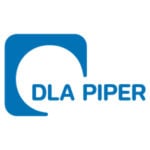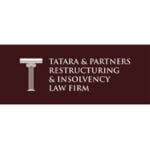-
What forms of security can be granted over immovable and movable property? What formalities are required and what is the impact if such formalities are not complied with?
Broadly speaking, there are five types of security interest that can arise under BVI law, namely:
(i) Legal mortgage: A legal mortgage arises when legal title to an asset is transferred from the mortgagor to the mortgagee as security for a debt obligation on the condition that the mortgagor has the right to have the asset transferred back once the debt obligations have been performed, known as the equity of redemption.
A legal mortgage over shares of a BVI company requires the shares to be transferred into the name of the mortgagee and for the Register of Members to be updated to record the mortgagee as the registered shareholder of such shares. If a legal mortgage is not perfected in this manner then the security will normally take effect as an equitable mortgage. As a registered shareholder, the mortgagee is entitled to any rights attaching to those shares such as the right to vote and to receive dividends in accordance with the company’s constitutional documents and BVI law. In the event of default, the holder of a legal mortgage can enforce its security over shares by either foreclosing on the shares, exercising a power of sale or appointing a receiver over the shares. There is no requirement for security over shares issued by a BVI company to be registered in order for the security to be valid. However, it is common for a notation of the security interest to be made in the share register of the company.
BVI companies are widely used to hold property or land in foreign jurisdictions. To perfect the security, any legal mortgage governed by BVI law over foreign property or land will require legal title to have been transferred as a matter of local law to the mortgagee.
(ii) Equitable mortgage: An equitable mortgage arises when a legal mortgage is not perfected because legal title to the asset has not been transferred or where the parties have agreed to create an equitable mortgage over an asset. The main distinction between a legal and equitable mortgage is that an equitable right can be extinguished by a bona fide purchaser for value without notice of the mortgage.
(iii) Fixed or floating equitable charge: An equitable charge is the most common form of security taken over intangible assets and entitles the secured party to exercise a power of sale in respect of the charged assets in certain circumstances. There is no transfer of legal title to the asset in question and the secured party’s right to exercise its power of sale arises under the security documentation.
(iv) Pledge: As a possessory form of security, a pledge can only be taken over physical assets and is generally of more limited application in the jurisdiction. Since ownership of registered shares is not granted by physical delivery, they cannot be pledged. Whilst it was possible to grant a pledge over bearer shares, the issuance of new bearer shares in the BVI has been prohibited by statute since 2010 and existing bearer shares immobilized and, following the recent amendments to the BVI Business Companies Act 2004 (as amended) (the BCA), from 1 July 2023 each existing bearer share of a bearer share company will be deemed converted to a registered share and treated as if it had been issued on or after the 1 July 2023 as a registered share. It is possible to pledge a share certificate of a registered share in a BVI company but not the share itself, which means the security is of little practical value.
(v) Legal lien: A legal lien is a right to retain physical possession of tangible assets as security for the debt obligations. The secured party has no power of sale but can refuse to return the assets until the obligations have been discharged.
In order for the security to be valid and binding there must be an agreement to create a security interest granted by a chargor who has the power to confer a security interest which complies with the statutory formalities in respect of an identifiable asset and a valid and binding obligation of a debtor.
Where a BVI company grants security over its assets, it is required under section 162 of the BCA to record the security granted in a non-public register of charges maintained at the company’s registered office. This mandatory register of charges is not open to public inspection. A BVI company also has the option (but not an obligation) under section 163 BCA of maintaining a public register of charges which does determine priority under BVI law and which will be available for inspection via a company search with the Registry of Corporate Affairs. A security interest which is registered in the public register has priority over all security in respect of the same asset(s) which is subsequently registered against the company in the public register and all security created after the “commencement date” (as defined in section 160 BCA)1 which is not registered.
Footnote(s):
1 The “commencement date” is defined in section 160(1) BCA as (i) the date upon which a company which was formerly registered under the predecessor legislation was formally re-registered as a company under the BCA (ii) in the case of a company continued under the BCA the date of its continuation or (iii) in all other cases, January 1 2005.
-
What practical issues do secured creditors face in enforcing their security package (e.g. timing issues, requirement for court involvement) in out-of-court and/or insolvency proceedings?
Enforcement of security in the BVI usually concerns enforcement against assets situated in the BVI and in particular against shares held in BVI companies. Enforcement against assets of a BVI company held outside of the jurisdiction will be most frequently subject to and governed by the law of the jurisdiction in which the assets are located. Most security documents entitle the secured party to appoint a receiver in the event of default without recourse to the court. There are notice procedures that must be followed when appointing a receiver over a BVI company (whether appointed in or out of court) and the receiver must give notice of their appointment to the Registrar of Companies and (in the instance of the company being regulated) to the Financial Services Commission. The appointment of a receiver is also subject to stringent notice provisions set out in section 139 of the BVI Insolvency Act, 2003 (as amended) (the “IA”) with the receiver being potentially liable, on summary conviction, to pay a penalty of US$2,000 in the instance of a failure to make the requisite filing. It is therefore imperative to seek BVI legal advice before taking such steps.
The remedy of foreclosure is only available to mortgagees. An equitable mortgagee is first required to register themselves as the legal shareholder before it can take steps to foreclose. As foreclosure requires two orders from the court, namely an order nisi followed by an order absolute, the process can take around four to months (and possibly longer) with the costs of enforcement being higher than other remedies due to the nature of the process.
The court tends to view foreclosure as a draconian remedy and is therefore reluctant to grant it. A mortgagor can seek to reopen foreclosure after the order has been made which increases uncertainty. The court’s primary concern is one of fairness and where the asset is arguably worth more than the secured debt, the court’s preference is to order a judicial sale or require the secured party to satisfy the court that the sale price is the best available having regard to all of the circumstances and to account for any surplus sale proceeds.
Similar issues arise with exercising a power of sale over a secured asset. Whilst the assistance of the court is not required to exercise a power of sale, it is not uncommon for a secured party to seek a judicial sale in circumstances where the secured creditor owes a duty to obtain the best price reasonably obtainable and the sale can be restrained or set aside where the security holder is found to have acted in an inappropriate manner.
The most common form of security enforcement is the appointment of a receiver which can arise under the express terms of the security document or under statute. An appointment under the security document must be made in writing but does not require an order of the court. A receiver appointed over shares has the power to exercise all rights attaching to those shares including a power to vote the shares, sell the shares or receive dividends. Where a BVI company holds shares in a subsidiary company it is common for the receiver to vote the shares to replace the board of directors of the subsidiary company and drill down the structure to the extent necessary to secure and realize assets in order to discharge the debt owed.
-
What restructuring and rescue procedures are available in the jurisdiction, what are the entry requirements and how is a restructuring plan approved and implemented? Does management continue to operate the business and / or is the debtor subject to supervision? What roles do the court and other stakeholders play?
There are three types of arrangement available in the BVI: (i) a plan of arrangement under section 177 BCA; (ii) a scheme of arrangement under section 179A BCA; and (iii) a Company Creditors’ Arrangement under Part II of the IA.
Plan of arrangement
A plan of arrangement can be used to enable a company to amend its memorandum and articles of association, implement a reorganization or reconstruction, merge or consolidate one or more BVI companies with other companies (provided that the surviving company is a BVI company), separate businesses, dispose of any assets, business, shares, debt or other securities, approve the dissolution of the company or put in place any combination of the above. There is no requirement for the company to be insolvent for a plan of arrangement to be validly entered into.
If the directors of a BVI company determine that it is in the best interests of the company, the directors of the company may approve a plan of arrangement which sets out details of the proposed arrangement. A voluntary liquidator may also approve a plan of arrangement. Upon approval of the plan by the directors/voluntary liquidator, an application must be made to the Court for approval of the proposed arrangement. In considering whether to make an order in respect of the proposed plan, the Court will consider a number of factors including its fairness, which person(s) the company is required to notify and the manner in which approval must be obtained and the rights of dissenting shareholders. The Court may also give directions with respect to amendments to the plan.
Where the Court makes an order approving a plan of arrangement, the directors/voluntary liquidator of the company will confirm the plan as approved, following any further directions ordered by the Court, including giving notice to the persons to whom the order of the Court requires notice to be given and submitting the plan of arrangement to those persons for such approval, if any, as the order of the Court requires. After the plan of arrangement has been approved by those persons, articles of arrangement shall be executed by the company containing the plan of arrangement, the order of the Court approving the plan of arrangement and the manner in which the plan of arrangement was approved, if approval was required by the order of the Court.
The articles of arrangement shall be filed with the Registrar. Upon the registration of the articles of arrangement, the Registrar shall issue a certificate certifying that the articles of arrangement have been registered. An arrangement is effective on the date the articles of arrangement are registered by the Registrar or on such date subsequent thereto, not exceeding 30 days, as is stated in the articles of arrangement.
Scheme of arrangement
A scheme of arrangement under section 179A BCA (similar in nature to an English scheme of arrangement) can be utilised as a mechanism to reach a statutory form of compromise between a BVI company and its members or creditors (or any class thereof). Procedurally, scheme proceedings are commenced by court application, made by the company, a creditor, a shareholder or (where the company is being wound up) a liquidator. The Court may then order a meeting of the proposed scheme participants to consider the proposed scheme and give further directions with respect to the conduct of that meeting. If a majority in number representing 75% in value of scheme participants present and voting either in person or by proxy at the meeting, agree to any compromise or arrangement, the court’s jurisdiction to sanction the scheme is invoked and will usually be approved subject to considerations of fairness. If sanctioned by the court, the arrangement will become binding on its terms. There is an express carve-out of dissenting shareholder provisions. The BVI Court has recently clarified in Tristan Oil Ltd v The Scheme Creditors BVIHCM 2023/0120 that a party with a “relevant interest” must challenge a scheme of arrangement at the sanction hearing, and no challenge can be brought after the sanction order has been sealed. The question of “relevant interest” is determined by reference to the principle set out Re Lamo Holdings BV [2023] EWHC 1558 where the Court held that a “relevant interest” is one “that would be affected by the Scheme itself, or the implementation thereof, in a way that is sufficient for a court to say that the Scheme should not be sanctioned.”
An order of the Court will have no effect until a copy of that order has been filed with the Registrar of Companies. A copy of an order of the Court must then be annexed to every copy of the company’s memorandum issued after the order has been made.
Company Creditors’ Arrangement
A company creditors’ arrangements (CCA) pursuant to Part II IA may be used by BVI companies as a way of enabling them to compromise liabilities with unsecured creditors, in circumstances where the company is or is likely to become insolvent. A proposal may be made by the directors or (in applicable circumstances) by a liquidator or administrator. The arrangement must contain the information prescribed by legislation and name an eligible BVI insolvency practitioner to be appointed as interim supervisor. A meeting of creditors is then called by the interim supervisor to consider the arrangement within 28 days of their appointment. If 75% in value of the creditors present at the meeting approved the arrangement, it will take effect and will bind all creditors of the company (including those who did not vote or who opposed the arrangement). The rights of secured or preferred creditors with respect to their security (and the enforcement thereof) are not affected, unless otherwise agreed by such creditors in writing. Following approval, the appointed supervisor will immediately take possession of the assets of the company. However, the director(s) (or the liquidator) will remain in control of the company. There is no statutory time period within which a CCA must be completed.
Appointment of Provisional Liquidators with a restructuring mandate
In a judgment handed down in May 2019 in the matter of Constellation Overseas Limited (BVIHC (Com) 2018/0206), the BVI Court confirmed the court’s jurisdiction to appoint “soft touch” provisional liquidators over a BVI company to provide the company with the opportunity to restructure its debts and continue as a viable going concern, as an alternative to liquidation. The role of the provisional liquidators is to explore restructuring options whilst the incumbent directors retain day to day control of the company’s affairs. For obvious reasons, this is only appropriate where there is no alleged wrongdoing against the directors. The restructuring itself, if viable, will typically be implemented by way of a scheme of arrangement. The primary benefit of appointing provisional liquidators to perform this function is that their appointment invokes a statutory moratorium which prevents creditors or other parties from commencing or continuing proceedings against the company without court sanction, which provides vital breathing room for the company to explore restructuring options without the threat of disruption from creditors. Constellation was subsequently followed by Jack J. in 2020 in relation to the restructuring of the Century Sunshine Group and the jurisdiction has seen an increase in both schemes and “soft touch” provisional liquidations in recent years.
-
Can a debtor in restructuring proceedings obtain new financing and are any special priorities afforded to such financing (if available)?
There are no statutory restrictions on a company obtaining new financing upon entering into a restructuring process where a plan or scheme has been approved and, as such, there are no special priorities afforded to such financing.
-
Can a restructuring proceeding release claims against non-debtor parties (e.g. guarantees granted by parent entities, claims against directors of the debtor), and, if so, in what circumstances?
There are no statutory provisions which provide for the release of claims against non-debtor parties. The company can agree to release claims it has against third parties provided that it is in the best interests of the company to do so, which typically requires the company to receive good consideration for any rights being compromised or waived and subject to such releases being permissible according to the underlying law governing the relevant obligation.
-
How do creditors organize themselves in these proceedings? Are advisory fees covered by the debtor and to what extent?
Typically, where the restructuring process takes place within a “soft touch” provisional liquidation, the rules relating to the formation of a creditors’ committee will apply and that is the usual mechanism by which creditors will organize to represent their collective interests in the process. The rules for the formation and operation of a creditor’s committee are defined by statute, as supplemented by well-developed case law from England & Wales and other common law jurisdictions. The creditors’ committee is able to retain legal advisors as an expense of the provisional liquidation with the approval of the liquidator(s).
Where no formal creditor’s committee is formed, either because the rules do not apply or due to the specific circumstances of the case, it is common for an ad hoc creditor’s committees to form, usually coalescing around the major creditor(s). It is common in the context of successful restructuring cases for the legal costs of an ad hoc committee to be paid from the assets of the company, although that is a matter of specific agreement in each case.
-
What is the test for insolvency? Is there any obligation on directors or officers of the debtor to open insolvency proceedings upon the debtor becoming distressed or insolvent? Are there any consequences for failure to do so?
Pursuant to section 8(1) IA, a company is deemed to be insolvent if in summary (a) it fails to comply with the requirements of a statutory demand which has not been set aside; (b) execution or other process issued on a judgment, decree or order of a BVI court in favour of a creditor of the company is returned wholly or partly unsatisfied; or (c) either the value of the company’s liabilities exceeds its assets or the company is unable to pay its debts as they fall due.
A director owes a duty to act in the best interests of the company which are equated with the interests of creditors collectively when the company is insolvent or of doubtful solvency. The extent to which the directors should consider the interests of creditors or shareholders or both will depend on the extent and certainty of the company’s insolvency.
Trading whilst insolvent is an offence in the BVI and directors are potentially liable for all losses which arise after the date on which they realized or ought to have realized that there was no reasonable prospect that the company would avoid going into insolvent liquidation. Upon such realization, directors are required to take every step reasonably open to them to minimize the loss to the company’s creditors. A liquidator can bring an insolvent trading action against directors and persons acting as shadow or de facto directors.
-
What insolvency proceedings are available in the jurisdiction? Does management continue to operate the business and / or is the debtor subject to supervision? What roles do the court and other stakeholders play? How long does the process usually take to complete?
The following insolvency procedures are available in the BVI:
Court supervised liquidation
Pursuant to section 159 of the IA, a liquidator may be appointed over a company through a qualifying resolution of its members or by order of the Court on application by the company, a creditor, a member, the supervisor of a creditors’ arrangement in respect of the company, as well as by certain regulatory or prosecutorial authorities.
Where an application for the appointment of a liquidator of a company has been filed but not yet determined, the Court may, pursuant to section 170 IA, appoint a provisional liquidator if the assets of the company need to be protected in the interim. An application for the appointment of a provisional liquidator will usually be made on an expedited ex parte basis where there is a real risk of asset dissipation before the application to appoint liquidators can be determined.
The Court’s jurisdiction to appoint a liquidator over a company is engaged where the company is insolvent or where it is just and equitable or in the public interest for a liquidator to be appointed. The commencement of the liquidation is the date on which the order is made, as opposed to the date on which the petition was filed (as is the case in certain other common law jurisdictions).
Where a company is being wound up compulsorily by order of the Court or under the supervision of the Court, the Court will appoint one or more individuals to act as liquidators for the purpose of conducting the proceedings in winding up the company and assisting the Court. The liquidator acts as an officer of the Court and remains under its supervision and control. In exercising its powers, the Court will consider how best to serve the interests of the stakeholders.
Once a liquidator is appointed by the Court, the directors of the company technically remain in office but they cease to have any powers, functions or duties other than those required or permitted under the IA or expressly authorized by the liquidators.
Pursuant to section 168 IA an application to appoint a liquidator must be determined within six months of the date of the application being filed at Court, unless extended by Court order. Uncontested applications are typically determined within 3-4 months with contested application taking 6-12 months.
The primary function of the liquidator is to collect, realize and distribute the assets of the company to its creditors and, if there is a surplus, to the persons entitled to it and to report to the company’s creditors and contributories on the affairs of the company and the manner in which it has been wound up. The duration of the liquidation process is necessarily determined by the complexity of the issues to be resolved in the liquidation and can range from anywhere between several months and several years.
Soft touch provisional liquidators
As discussed above, the Court has jurisdiction to appoint so called “soft touch” provisional liquidators with a restructuring mandate, where the appointment of the provisional liquidators is intended to bring about a moratorium on claims so that the company has the opportunity to propose a compromise or arrangement to creditors. In such a case, where there is no risk of asset dissipation and the liquidator has been appointed to explore restructuring options so as to allow the company to continue as a viable going concern, the powers of the liquidators are typically confined to promulgating a restructuring plan while the incumbent Board of Directors remain in control of the day-to-day affairs of the company.
Administration (currently not in force in the BVI)
Part III of the IA contains provisions as to the appointment of administrators. However, these provisions are currently not in force.
Receivership
A receiver can be appointed by the Court, but may also be appointed under a debenture or other instrument. The IA is the primary legislation applicable to the appointment of receivers under BVI law. Under the IA there are two types of receiver; fixed charge receivers and administrative receivers. In addition, both the BCA and the Conveyancing and Law of Property Act 1961 (the CLPA) include further statutory provisions for the appointment of receivers.
Appointment under a debenture or other instrument
Section 139 IA sets out certain formal requirements relating to the appointment of a receiver out of court. In summary, the appointment of a receiver out of court must be made in writing and will take effect from the time upon which the receiver receives the written notice of appointment. The appointment is not effective unless the receiver accepts it before the end of the next business day following the day on which he receives the written appointment. There is provision for joint receivers to be appointed outside of court. Where a receiver is appointed out of court they shall confirm their acceptance in writing to the person who appointed them within seven days. Written acceptance or confirmation will state the time and date of receipt of the notice of appointment and the time and date of acceptance.
Upon being appointed a receiver shall send notice of their appointment to the company, the Registrar of Companies and, if the company is or has been a regulated person, with the Financial Services Commission.
A receiver appointed out of court, other than an administrative receiver, is deemed to be the agent of the company unless the charge or instrument under which he was appointed expressly provides otherwise. An administrative receiver is deemed to be the agent of the company in receivership unless a liquidator is subsequently appointed, in respect of a company in receivership, which will terminate the agency of any receiver, including an administrative receiver. A receiver appointed by the court will be deemed to be an agent of the court, not the company, and the specific powers of a receiver are set out in the charge document and/or the court order appointing him.
Appointment of an Administrative Receiver
Pursuant to the IA, an administrative receiver may be appointed by the court or by the holder of a debenture or other instrument of the company secured by a floating charge. Unless the debenture or other instrument states otherwise, an administrative receiver may execute all documents necessary or incidental to the exercise of his powers in the name of and on behalf of the company in receivership and use the company’s seal. Unless the debenture or other appointing instrument states otherwise, the powers conferred on an administrative receiver shall include those set out in Schedule 1 of the IA.
-
What form of stay or moratorium applies in insolvency proceedings against the continuation of legal proceedings or the enforcement of creditors’ claims? Does that stay or moratorium have extraterritorial effect? In what circumstances may creditors benefit from any exceptions to such stay or moratorium?
Once a liquidator has been appointed, unless the Court orders otherwise, a statutory moratorium is automatically invoked with the effect that no person may commence or continue with any action or proceeding against the company or in relation to its assets or exercise or enforce, or continue to enforce any right or remedy over or against assets of the company. However, a secured creditor may take steps to enforce its security without recourse to the liquidator or the court. The statutory moratorium purports to have extraterritorial effect, but the enforcement of the moratorium in any foreign jurisdiction would likely require recognition by and the assistance of the foreign court.
Pursuant to section 174 of the IA, where an application for the appointment of a liquidator of a company has been filed but not yet determined, the company, a creditor, a member, certain regulatory or prosecutorial authorities or any other person entitled to apply for the appointment of a liquidator may apply for a stay of proceedings to which the company is a party.
-
How do the creditors, and more generally any affected parties, proceed in such proceedings? What are the requirements and forms governing the adoption of any reorganisation plan (if any)?
A secured creditor may still exercise its rights over that property subject to the security interest in priority to any rights of the liquidator. An unsecured creditor may make a claim against a company in liquidation by submitting a written claim to the liquidator signed by, or on behalf of, the unsecured creditor. The liquidator may require an unsecured creditor to (i) provide further details of its claim, (ii) verify the claim by way of an affidavit; or (iii) provide documentary or other evidence to substantiate the claim. It is an offence to submit a claim knowing it to be false or misleading in any material matter, or to omit a material fact or matter. The liquidators shall admit a claim which evidences, on the balance of probabilities, a proper claim on the company’s estate, and reject any claim which does not.
The adjudication of claims in a reorganization scenario will usually be governed by the operative document by which the reorganization is effected (for example, a scheme of arrangement will usually include provisions for the submission and adjudication of claims by a scheme supervisor, although those provisions will typically replicate the claim adjudication process in a liquidation process so as to ensure fairness.
-
How do creditors and other stakeholders rank on an insolvency of a debtor? Do any stakeholders enjoy particular priority (e.g. employees, pension liabilities, DIP financing)? Could the claims of any class of creditor be subordinated (e.g. recognition of subordination agreement)?
The claims of preferential creditors rank ahead of the claims of unsecured creditors. The statutory waterfall for distributions made in a liquidation under the IA is as follows:
- the costs and expenses properly incurred in the liquidation;
- preferential claims admitted by the liquidator;
- all other unsecured claims admitted by the liquidator; and
- interest payable on admitted claims.
Preferential claims include (a) the amount due to a person as a present or past employee of the company including salary; (b) any amount due to the social security board; (c) any amount due in respect of pension contributions; (d) sums due to the Government of the British Virgin Islands; and (e) any sums due to the Financial Services Commission.
Any surplus assets remaining after payment of the costs, expenses and claims shall be distributed to the members in accordance with their rights and interests in the company.
-
Can a debtor’s pre-insolvency transactions be challenged? If so, by whom, when and on what grounds? What is the effect of a successful challenge and how are the rights of third parties impacted?
Part VIII of the IA provides that transactions entered into prior to the commencement of liquidation may be set aside where such transactions constitute one or more of the following four types of voidable transaction: an unfair preference, an undervalue transaction, a voidable floating charge or an extortionate credit transaction.
Unfair preference
A transaction will constitute an unfair preference given by the company to a creditor where the transaction:
- is an insolvency transaction within the meaning of the IA, being a transaction entered into at a time when the company was insolvent or where the transaction itself causes the company to become insolvent;
- was entered into within the “vulnerability period”. In the case of a transaction entered into with a connected person, the vulnerability period is the period commencing two years prior to the onset of insolvency (as defined in the IA) and ending on the appointment of the administrator or liquidator. In the case of a transaction entered into with any other person, the vulnerability period is the period commencing six months prior to the onset of insolvency and ending on the appointment of the administrator or the liquidator; and
- has the effect of putting the creditor into a position which, in the event of the company going into insolvent liquidation, will be better than the position he would have been in if the transaction had not been entered into.
The test is objective so there is no requirement for the liquidator to show any intention on the part of the company to prefer one creditor over another. However, a transaction will not be considered an unfair preference if the transaction took place in the ordinary course of the company’s business. Where a transaction entered into by a company within the vulnerability period has the effect specified in (iii) above in respect of a creditor who is a connected person, unless the contrary is proved, it is presumed that the transaction was an insolvency transaction and that it did not take place in the ordinary course of business.
Undervalue transaction
A company enters into an undervalue transaction with a person if:
- the company makes a gift to that person or otherwise enters into a transaction with that person on terms that provide for the company to receive no consideration; or
- the company enters into a transaction with that person for a consideration the value of which, in money or money’s worth, is significantly less than the value, in money or money’s worth, of the consideration provided by the company; and
- in either case, the transaction concerned is an insolvency transaction and is entered into within the vulnerability period.
A company does not enter into an undervalue transaction with a person if the company enters into the transaction in good faith for the purpose of its business and, at the time when it enters into the transaction, there were reasonable grounds for believing that the transaction would benefit the company.
Where a company enters into a transaction with a connected person within the vulnerability period and the transaction falls within (i) or (ii) above, there is a rebuttable presumption that the transaction was an insolvency transaction and that it was not entered into by the company in good faith or for the purpose of its business.
Voidable floating charge
A floating charge created by a company is voidable if it was created within the vulnerability period and constitutes an insolvency transaction. A floating charge is not voidable to the extent that it secures:
- money advanced or paid to the company, or at its direction, at the same time as, or after, the creation of the charge;
- the amount of any liability of the company discharged or reduced at the same time as, or after, the creation of the charge;
- the value of assets sold or supplied, or services supplied, to the company at the same time as, or after, the creation of the charge; and
- the interest, if any, payable on the amount referred to in (i) to (iii) pursuant to any agreement under which the money was advanced or paid, the liability was discharged or reduced, the assets were sold or supplied or the services were supplied.
Where a company creates a floating charge in favor of a connected person within the vulnerability period, there is a rebuttable presumption that the charge was an insolvency transaction. The value of assets or services sold or supplied is the amount in money which, at the time they were sold or supplied, could reasonably have been expected to be obtained for the sale or supply of the goods or services in the ordinary course of business and on the same terms, apart from the consideration, as those on which the assets or services were sold or supplied to the company.
Extortionate credit transaction
Where the company enters into a credit transaction during the vulnerability period (which for these purposes is five years prior to the onset of insolvency) the transaction is subject to challenge as an extortionate credit transaction where its terms provide for grossly exorbitant payments to be made or where the transaction grossly contravenes ordinary principles of fair trading.
-
How existing contracts are treated in restructuring and insolvency processes? Are the parties obliged to continue to perform their obligations? Will termination, retention of title and set-off provisions in these contracts remain enforceable? Is there any ability for either party to disclaim the contract?
Pursuant to section 217 of the IA, the liquidator of a company may disclaim an unprofitable contract by filing a notice of disclaimer with the Court. The liquidator must, within 14 days of the date on which the disclaimer notice is filed, give notice to every person whose rights are, to the knowledge of the liquidator, affected by the disclaimer. However, it will not affect the rights or liabilities of any other person except in so far as is necessary to release the company from liability. A person suffering loss or damage as a result of a disclaimer may file a claim in the liquidation of the company as an unsecured creditor for the amount of the loss or damage suffered.
Prior to the commencement of liquidation, where there have been mutual credits, debts or other mutual dealings between a debtor and a creditor claiming or intending to claim in the insolvency proceeding, an account shall be taken of what is due from each party to the other, the sum due from one party shall be set-off against the sums due from the other party and only the balance of the account, if applicable, may be claimed in the insolvency proceeding or will be payable to the debtor. A creditor is, however, not entitled to claim the benefit of a set-off (under section 150 of the IA) if he had actual notice that the debtor was insolvent at the time he gave to, or received credit from, the debtor or at the time he acquired any claim against the debtor or any part of or interest in such a claim.
-
What conditions apply to the sale of assets / the entire business in a restructuring or insolvency process? Does the purchaser acquire the assets “free and clear” of claims and liabilities? Can security be released without creditor consent? Is credit bidding permitted? Are pre-packaged sales possible?
Pursuant to section 186 (2) and Schedule 2 of the IA, a liquidator has the power to sell or otherwise dispose of property in the estate, i.e. property not charged by a valid security interest of a secured creditor. However, it is common for the Court to include in the order appointing a liquidator, a requirement for the liquidator to seek sanction prior to selling any assets of the company as part of the court’s supervisory function. Court sanction is also sought in practice where members or creditors of the company have raised objections or concerns about the proposed sale.
Generally, the liquidator is able to sell assets to a buyer free of any claims. However, where a liquidator disposes of any assets of the company to a person connected to the company, he must first notify the creditors’ committee to ensure that any buyer takes the asset free of claims.
If a liquidator is appointed over a company, a secured creditor may still exercise its rights over that property subject to the security interest in priority to any rights of the liquidator. In the event that a secured creditor surrenders its security or the company holds assets that are not subject to security, any purchaser of such assets will take that asset free and clear of claims in the ordinary course.
-
What duties and liabilities should directors and officers be mindful of when managing a distressed debtor? What are the consequences of breach of duty? Is there any scope for other parties (e.g. director, partner, shareholder, lender) to incur liability for the debts of an insolvent debtor and if so can they be covered by insurances?
The duties owed by directors and officers of a BVI company divide into statutory duties, quasi-contractual duties arising under the company’s constitution, fiduciary duties, and the duty at common law to exercise reasonable care, skill, and diligence. Statutory duties derive from the BCA and any other statute to which the relevant company may be subject by virtue of the nature of its business. Duties owed by a director as a fiduciary or as a result of the common law duty of reasonable care, skill and diligence do not derive from (and are not codified in) any statute, but from case law.
The common law and fiduciary duties owed by a director are owed to the company of which he is a director. The director does not, by virtue of his office, owe such duties to third parties, including creditors of the company or shareholders in the company. Although directors owe their duties to the company, rather than to its creditors, those duties require them to have regard to the interests of the creditors if the company is insolvent or of doubtful solvency.
The common law duties and fiduciary duties owed by the director to the company are enforceable by the company acting through its liquidators or other duly appointed officeholders of the company who have displaced the authority of the directors.
When managing a company in financial distress a director must be mindful of the provisions under the IA with regard to voidable transactions, insolvent trading, fraudulent trading and summary remedies against delinquent officers and others. An overview of voidable transactions and insolvent trading are set out above.
Fraudulent trading
The liquidator of a company may apply to the BVI Court for an order pursuant to the fraudulent trading provisions under section 255 of the IA. The Court may make an order where it is satisfied that at any time before the commencement of the liquidation of the company, any of its business has been carried on with intent to defraud creditors of the company or creditors of any other person or for any fraudulent purpose. If the Court decides to make such an order it may declare that any person who was knowingly a party to the carrying on of the business in such manner is liable to make such contribution, if any, to the company’s assets it considers proper.
Summary remedies against delinquent officers and others
On the application of the liquidator of the company, the Court may make an order that the officer, liquidator, supervisor, administrator, administrative receiver or any person who has been concerned in the promotion, formation, management, liquidation or dissolution of the company repays, restores or accounts for the money or other assets, to the company as compensation for the misfeasance or breach of duty. Upon hearing such an application, pursuant to section 254 of the IA, the Court must be satisfied that the officer, liquidator or other office holder has misapplied or retained, or become accountable for any money or other assets of the company or has been guilty of misfeasance or breach of any fiduciary or other duty in relation to the company. This provision of the IA is wide in scope, enabling the Court to have a broad remit with respect to those found to have been involved in wrongdoing at the detriment of the company.
In addition, subject to the existence of one of the circumstances outlined in section 262(1) of the IA, the Official Receiver has the power to apply to the Court for a disqualification order not more than six years after the date on which the company became insolvent.
-
Do restructuring or insolvency proceedings have the effect of releasing directors and other stakeholders from liability for previous actions and decisions? In which context could the liability of the directors be sought?
Restructuring or insolvency proceedings will not generally release directors and other officers from liability for previous actions and decisions, unless a release is explicitly stated in the final arrangement. Depending on the circumstances and the nature of the prior action or decisions involved, directors or officers may be indemnified in respect of such actions under the company’s Articles of Association and or covered by directors’ and officers’ liability insurance.
A director can, therefore, still be held liable for decisions made and actions taken whilst he was a director of the company once he has resigned or been removed. Pursuant to the provisions in the IA and upon an application by the appointed liquidator, the Court may make an order against an individual who is or who has been a director of the company, if it is satisfied that at any time before the commencement of the liquidation of the company, that person knew or ought to have concluded that there was no reasonable prospect that the company would avoid going into insolvent liquidation, and he was a director of the company at the relevant time. However, the BVI Court will not make an order against a director if it is satisfied that after he first knew, or ought to have concluded, that there was no reasonable prospect that the company would avoid going into insolvent liquidation, he took every step reasonably open to him to minimize the loss to the company’s creditors.
-
Will a local court recognise foreign restructuring or insolvency proceedings over a local debtor? What is the process and test for achieving such recognition? Does recognition depend on the COMI of the debtor and/or the governing law of the debt to be compromised? Has the UNCITRAL Model Law on Cross Border Insolvency or the UNCITRAL Model Law on Recognition and Enforcement of Insolvency-Related Judgments been adopted or is it under consideration in your country?
Pursuant to Part XIX of the IA the BVI Court may make orders in respect of foreign restructuring or insolvency proceedings. However, such orders may only be made in respect of proceedings in jurisdictions designated by the BVI Financial Services Commission. This list is currently limited to the following jurisdictions: Australia, Canada, Finland, Hong Kong, Japan, Jersey, New Zealand, the United Kingdom, and the United States. A foreign appointed representative may apply to the BVI Court for the following orders in respect of aid for foreign proceedings (a person or body, including one appointed on an interim basis, authorized in a foreign proceeding to administer the reorganization or the liquidation of the debtor’s property):
- restrain the commencement or continuation of any proceedings against a debtor or in relation to any of the debtor’s property;
- restrain the creation, exercise or enforcement of any right or remedy over or against any of the debtor’s property;
- require any person to deliver up to the foreign representative any property of the debtor or the proceeds of such property;
- make such order or grant such relief as it considers appropriate to facilitate, approve or implement arrangements that will result in a co-ordination of a BVI insolvency proceeding with a foreign proceeding;
- appoint an interim receiver of any property of the debtor for such term and subject to such conditions as it considers appropriate;
- authorize the examination by the foreign representative of the debtor or of any person who could be examined in a BVI insolvency proceeding in respect of a debtor;
- stay or terminate or make any other order it considers appropriate in relation to a BVI insolvency proceeding; or
- to make such other or grant such other relief as it considers appropriate.
In making an order the Court may apply the law of the BVI or the law applicable in respect of the foreign proceeding. Additionally, the BVI Court may, on the application of an insolvency officer, authorize him to act in a foreign country on behalf of a BVI insolvency proceeding as permitted by the applicable foreign law.
The Eastern Caribbean Supreme Court has adopted the Judicial Insolvency Network’s Guidelines for Communication and Cooperation between Courts in Cross-Border Insolvency Matters (the “JIN Guidelines”). These came into force in the BVI on 18 May 2017.
The BVI is not a signatory to the UNCITRAL Model Law on Recognition and Enforcement of Insolvency-Related Judgments. Part XVIII of the IA contains provisions (sections 436-465) reflecting provisions of the UNCITRAL Model Law on Cross Border Insolvency. However, these provisions are not currently in force in the BVI. It appears that these provisions will not come into force until the Model Law is adopted in other jurisdictions.
-
For EU countries only: Have there been any challenges to the recognition of English proceedings in your jurisdiction following the Brexit implementation date? If yes, please provide details.
Not Applicable.
-
Can debtors incorporated elsewhere enter into restructuring or insolvency proceedings in the jurisdiction? What are the eligibility requirements? Are there any restrictions? Which country does your jurisdiction have the most cross-border problems with?
Pursuant to the IA the BVI Court may appoint a liquidator of a foreign company (a company incorporated, registered or formed outside the BVI) if the Court is satisfied that the company has a connection with the BVI and satisfies one or more of the following requirements:
- the company is insolvent;
- the Court is of the opinion that it is just and equitable that a liquidator should be appointed;
- the Court is of the opinion that it is in the public interest for a liquidator to be appointed;
- the company is dissolved or has otherwise ceased to exist under or by virtue of the laws of the country in which it was last registered;
- the company has ceased to carry on business; or
- the company is carrying on business only for the purpose of winding up its affairs.
A foreign company will be considered as having a connection with the BVI only if it has or appears to have assets in the BVI, it is carrying on or has carried on business in the BVI or where there is a reasonable prospect that the appointment of a liquidator will benefit the creditors of the company.
-
How are groups of companies treated on the restructuring or insolvency of one or more members of that group? Is there scope for cooperation between office holders? For EU countries only: Have there been any changes in the consideration granted to groups of companies following the transposition of Directive 2019/1023?
There are no statutory provisions which deal with the restructuring or insolvency of two or more companies which form part of the same group, although the court will often take a pragmatic approach when exercising its supervisory function and there are obvious benefits to coordinating a restructuring or liquidation of entities within the same group of companies, particularly where the business, assets and liabilities of those companies are intertwined.
In a restructuring context, this is usually achieved by making the restructuring arrangements inter-conditional upon the approval of the restructuring arrangements across the group. For example, interlocking schemes of arrangement are common in the group context.
In the case of terminal liquidation proceedings, the usual position is that the same insolvency practitioners will be appointed across the group, with conflict liquidators or other alternative arrangements being put in place to manage and conflicts arising between the group companies.
Where different office holders have been appointed to different entities within the same group then those office holders, as professional insolvency practitioners and officers of the Court, will coordinate their efforts for the benefit of their respective stakeholders to the extent possible or practical. This is not always possible however, particularly where entities within the same group have competing claims to assets or against the same third parties (unless the third party in question has sufficient assets to discharge both claims). In cases where fraud is alleged, it is not uncommon for wrongdoers to use complex corporate structures to obscure or conceal fraudulent transactions and therefore it is important for office holders to coordinate their efforts and resources for the benefit of their respective stakeholders.
-
Is your country considering adoption of the UNCITRAL Model Law on Enterprise Group Insolvency?
The BVI is not a signatory to the UNCITRAL Model Law on Recognition and Enforcement of Insolvency Related Judgments and it is unlikely that the provisions reflecting the UNCITRAL Model Law will come into force in the BVI in the near future. Consistent with this position, there are no current plans for the BVI to adopt the UNCITRAL Model Law on Enterprise Group Insolvency.
-
Are there any proposed or upcoming changes to the restructuring / insolvency regime in your country?
Following the Court’s decision in the matter of Constellation Overseas and the subsequent use of “soft touch” provisional liquidations in other cases, it is hoped that the court’s jurisdiction to appoint “soft touch” provisional liquidators with a restructuring mandate will in due course be placed on a statutory footing by way of an amendment to the existing insolvency legislation.
A further and notable development has been with regard to the clarity around the lawfulness of third-party funding in an insolvency context, following the landmark decision in Exential Investments Inc., which has now become a common feature of many insolvency proceedings in the BVI. More recent decisions, such as that of the Court of Appeal in Fang Ankong v Green Elite Ltd (In Liquidation) (BVIHCMAP 2022/0048), upholding the decision of the lower court with respect to the sharing of asset disclosure information with a third-party funder have also illustrated the forward-thinking and pragmatic nature of the jurisdiction with regard to third-party funding.
-
Is your jurisdiction debtor or creditor friendly and was it always the case?
The BVI is considered to be a creditor friendly jurisdiction with an IA that is based on the English Insolvency Act 1986. Unlike in other offshore jurisdictions, the test for insolvency in the BVI is wide in scope and can be established based on either cash flow, balance sheet or technical insolvency.
Where a creditor has a good arguable case against a debtor (the test for a good arguable case is one which is more than barely capable of argument, i.e. a relatively low threshold) and can establish a real risk that the debtor will dissipate assets other than in the ordinary course of its business so as to frustrate the enforcement of any judgment obtained, the court will intervene to appoint provisional liquidators over the debtor company or grant a freezing order to restrain the debtor company from dissipating its assets for an improper person.
-
Do sociopolitical factors give additional influence to certain stakeholders in restructurings or insolvencies in the jurisdiction (e.g. pressure around employees or pensions)? What role does the State play in relation to a distressed business (e.g. availability of state support)?
The predominant use of BVI companies to hold assets in other jurisdictions means that the BVI government takes a laissez faire approach to insolvency and restructuring matters such that there is as a general rule no pressure or interference from the BVI government in respect of local sociopolitical issues arising in a restructuring or insolvency. On the geopolitical level, the impact of sanctions imposed on Russian individuals holding assets through BVI companies has resulted in a number of liquidations and receiverships which have been complicated by the need to obtain licences and approvals to pay fees and make distributions.
The BVI has a sophisticated, ethical and impartial judiciary that is well used to dealing with complex international disputes, traits which are shared by the legal profession in the BVI. Clients have confidence in the BVI legal system and that due process will be observed. In the event that there are grounds for appeal, such appeals will be heard in a timely manner by a well-regarded Court of Appeal with a final right of appeal to the Judicial Committee of the Privy Council in England, whose judges are predominantly justices of the Supreme Court of the United Kingdom.
Many international investors and businesses choose to incorporate their companies in the BVI or to enter into contracts governed by BVI law because they know that any disputes that arise will be dealt with efficiently, expeditiously and fairly, which may not always be the case in other jurisdictions. The BVI is well placed to service clients from jurisdictions whose legal systems have a reputation of judicial corruption or where there is no clear separation of powers or influence between the executive and the judiciary.
-
What are the greatest barriers to efficient and effective restructurings and insolvencies in the jurisdiction? Are there any proposals for reform to counter any such barriers?
Insolvencies in the BVI tend to have a significant cross-border element with BVI companies typically holding assets directly or indirectly in foreign jurisdictions. The orderly winding up or restructuring of the company for the benefit of its stakeholders can therefore often be dependent on the effectiveness of steps to be taken in those foreign jurisdictions. As the BVI has not adopted the UNCITRAL Model Law on Cross-Border Insolvency, officeholders are dependent upon judicial assistance from foreign courts under the common law principles of judicial comity and modified universalism which in certain jurisdictions can lead to uncertainty of outcome.
British Virgin Islands: Restructuring & Insolvency
This country-specific Q&A provides an overview of Restructuring & Insolvency laws and regulations applicable in British Virgin Islands.
-
What forms of security can be granted over immovable and movable property? What formalities are required and what is the impact if such formalities are not complied with?
-
What practical issues do secured creditors face in enforcing their security package (e.g. timing issues, requirement for court involvement) in out-of-court and/or insolvency proceedings?
-
What restructuring and rescue procedures are available in the jurisdiction, what are the entry requirements and how is a restructuring plan approved and implemented? Does management continue to operate the business and / or is the debtor subject to supervision? What roles do the court and other stakeholders play?
-
Can a debtor in restructuring proceedings obtain new financing and are any special priorities afforded to such financing (if available)?
-
Can a restructuring proceeding release claims against non-debtor parties (e.g. guarantees granted by parent entities, claims against directors of the debtor), and, if so, in what circumstances?
-
How do creditors organize themselves in these proceedings? Are advisory fees covered by the debtor and to what extent?
-
What is the test for insolvency? Is there any obligation on directors or officers of the debtor to open insolvency proceedings upon the debtor becoming distressed or insolvent? Are there any consequences for failure to do so?
-
What insolvency proceedings are available in the jurisdiction? Does management continue to operate the business and / or is the debtor subject to supervision? What roles do the court and other stakeholders play? How long does the process usually take to complete?
-
What form of stay or moratorium applies in insolvency proceedings against the continuation of legal proceedings or the enforcement of creditors’ claims? Does that stay or moratorium have extraterritorial effect? In what circumstances may creditors benefit from any exceptions to such stay or moratorium?
-
How do the creditors, and more generally any affected parties, proceed in such proceedings? What are the requirements and forms governing the adoption of any reorganisation plan (if any)?
-
How do creditors and other stakeholders rank on an insolvency of a debtor? Do any stakeholders enjoy particular priority (e.g. employees, pension liabilities, DIP financing)? Could the claims of any class of creditor be subordinated (e.g. recognition of subordination agreement)?
-
Can a debtor’s pre-insolvency transactions be challenged? If so, by whom, when and on what grounds? What is the effect of a successful challenge and how are the rights of third parties impacted?
-
How existing contracts are treated in restructuring and insolvency processes? Are the parties obliged to continue to perform their obligations? Will termination, retention of title and set-off provisions in these contracts remain enforceable? Is there any ability for either party to disclaim the contract?
-
What conditions apply to the sale of assets / the entire business in a restructuring or insolvency process? Does the purchaser acquire the assets “free and clear” of claims and liabilities? Can security be released without creditor consent? Is credit bidding permitted? Are pre-packaged sales possible?
-
What duties and liabilities should directors and officers be mindful of when managing a distressed debtor? What are the consequences of breach of duty? Is there any scope for other parties (e.g. director, partner, shareholder, lender) to incur liability for the debts of an insolvent debtor and if so can they be covered by insurances?
-
Do restructuring or insolvency proceedings have the effect of releasing directors and other stakeholders from liability for previous actions and decisions? In which context could the liability of the directors be sought?
-
Will a local court recognise foreign restructuring or insolvency proceedings over a local debtor? What is the process and test for achieving such recognition? Does recognition depend on the COMI of the debtor and/or the governing law of the debt to be compromised? Has the UNCITRAL Model Law on Cross Border Insolvency or the UNCITRAL Model Law on Recognition and Enforcement of Insolvency-Related Judgments been adopted or is it under consideration in your country?
-
For EU countries only: Have there been any challenges to the recognition of English proceedings in your jurisdiction following the Brexit implementation date? If yes, please provide details.
-
Can debtors incorporated elsewhere enter into restructuring or insolvency proceedings in the jurisdiction? What are the eligibility requirements? Are there any restrictions? Which country does your jurisdiction have the most cross-border problems with?
-
How are groups of companies treated on the restructuring or insolvency of one or more members of that group? Is there scope for cooperation between office holders? For EU countries only: Have there been any changes in the consideration granted to groups of companies following the transposition of Directive 2019/1023?
-
Is your country considering adoption of the UNCITRAL Model Law on Enterprise Group Insolvency?
-
Are there any proposed or upcoming changes to the restructuring / insolvency regime in your country?
-
Is your jurisdiction debtor or creditor friendly and was it always the case?
-
Do sociopolitical factors give additional influence to certain stakeholders in restructurings or insolvencies in the jurisdiction (e.g. pressure around employees or pensions)? What role does the State play in relation to a distressed business (e.g. availability of state support)?
-
What are the greatest barriers to efficient and effective restructurings and insolvencies in the jurisdiction? Are there any proposals for reform to counter any such barriers?

























